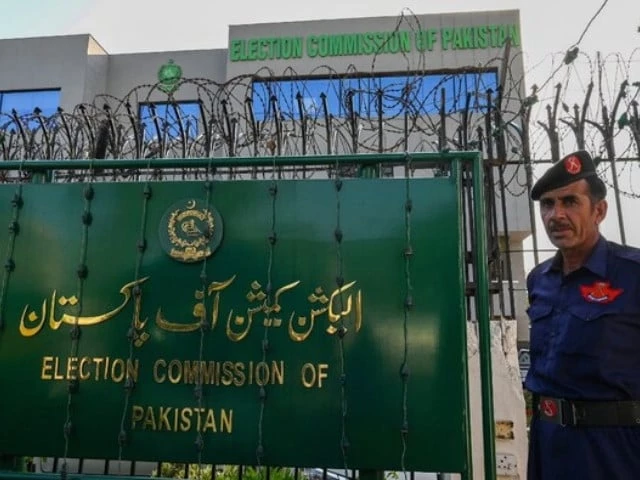ECP rejects criticism after SC ruling on reserved seats
Commission says it doesn’t alter decisions due to political pressure or for cheap popularity

The Election Commission of Pakistan (ECP) rejected on Saturday what it called “baseless propaganda” being circulated in certain media circles in response to renewed criticism following the Supreme Court’s constitutional bench’s decision on reserved seats.
The criticism arose after the Supreme Court's constitutional bench dismissed the Pakistan Tehreek-e-Insaf (PTI)-turned Sunni Ittehad Council’s (SIC) review petition regarding the allocation of reserved seats.
This decision allowed the ruling coalition, led by the Pakistan Muslim League Nawaz (PML-N), to emerge as the single largest party and to consolidate a two-thirds majority in the National Assembly.
#ECP pic.twitter.com/e570cZC2Ty
— Election Commission of Pakistan (OFFICIAL)🇵🇰 (@ECP_Pakistan) June 28, 2025
Amid shifting political dynamics, the ECP has reiterated its constitutional role and defended the legality of its decisions, saying the claims were contrary to facts and intended to mislead the public.
In a statement, a spokesperson for ECP said that some circles in the media were engaged in baseless propaganda against the Commission following the recent decision of the top court. The spokesperson said that the Commission declares this propaganda to be contrary to facts and based on falsehoods.
The statement said that such elements were unjustifiably targeting the Commission with criticism. It added that historical facts and numerous decisions of the superior judiciary provide irrefutable evidence that the Commission has always performed its duties in light of the Constitution and law. “The Supreme Court has repeatedly upheld the position of the Election Commission,” it read.
Read More: PTI loses court battle for reserved seats
For example, in the Senate elections, the spokesperson said, the Commission’s stance regarding secret ballot and show of hands procedures, which was fully in accordance with Article 226 of the Constitution, was upheld by a Supreme Court bench headed by the then ex-CJP Justice Gulzar Ahmed.
In the case of the disqualification election in Daska, the official added, the Commission’s decision was not only declared valid by the Supreme Court bench, led by then Chief Justice Umar Ata Bandial but also recognized as a constitutional action.
The Supreme Court bench headed by then Chief Justice Qazi Faez Isa had also endorsed the legal interpretation of the Commission concerning PTI’s intra-party elections, the statement maintained.
Furthermore, it said, in the case of the delisting of the All Pakistan Muslim League (APML), when the Commission delisted APML for failing to conduct intra-party elections, and this decision was challenged by APML in the Supreme Court, the Court upheld the Commission’s decision.
Following this, the spokesperson said, the Commission delisted several other parties that failed to comply with the law, keeping the Supreme Court’s decision in mind. The Supreme Court also accepted the Commission’s appeal regarding Punjab Election Tribunals, rejecting the Lahore High Court’s decision and upholding the Commission’s stance.
Also Read: PM extends olive branch to PTI amid reserve seats setback
Similarly, it was maintained, in the recent case concerning reserved seats of the Sunni Ittehad Council, first the Peshawar High Court and now the SC constitutional bench have upheld the Commission’s position as constitutional and legal.
“All these and many other judicial decisions are undeniable proof that the Election Commission does not alter its decisions due to political pressure, public clamor, or for cheap popularity,” the spokesperson said, adding the ECP rather performs its duties solely based on constitutional requirements, legal jurisdiction, and evidence.
The ECP said that it would not be an exaggeration to say that the Commission is a constitutional institution that is not intimidated by the unscrupulous tactics of any political party or vested interest group. Therefore, it concluded, it is in no way appropriate to hold the Commission responsible for shortcomings and weaknesses.























COMMENTS
Comments are moderated and generally will be posted if they are on-topic and not abusive.
For more information, please see our Comments FAQ